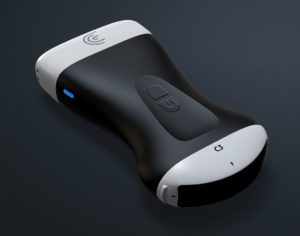Andrew Whitaker was a city bus operator, and over time, turning the large steering wheel caused tearing in his rotator cuff, causing pain in his shoulder, neck and back. For ten years, Andrew has been successfully treated by Dr. Hirahara. He attributes longer lasting pain relief from his procedures to the accuracy of the deposits made possible by Dr. Hirahara’ s skillful ultrasound-guided injections.
During his 20+ years as an orthopedic surgeon, Dr. Alan Hirahara, MD, FRCSC has had a lot of experience injecting patients to relieve pain. He’s still the first to admit that he uses ultrasound to make certain he gets to the right spot.
Watch the following 3-minute video to see Dr. Hirahara perform a subacromial cortisone injection on Mr. Whitaker with surgical lesions using a Clarius L15 HD High-Frequency Linear Scanner.
This procedure would be very hard to do completely blind. It would be hard because it wouldn’t have that nice filling effect in that release of the fluid as you’re pushing in,” Dr. Hirahara explains. “We’re really going to be almost hydro dissecting through the plane coming in and moving forward along that plane to make sure I actually open that space up between the supraspinatus and the deltoid. By looking at my image ahead of time, I’m able to see exactly where I want to come in. I see exactly my plan of angle and attack.”
Let’s Hear from Andrew Whitaker
We had a chance to interview Dr. Hirahara’s patient about his experience. Here’s what Mr. Whitaker had to say.
He’s an excellent doctor. I’m all for the ultrasound because it’s better to do that than just be poking around and miss the spot, » says Andrew. « Because what ends up happening is you have to come back and get another injection sooner than later. But with the ultrasound, he could get to the spot and then the shot usually lasts anywhere from four to five months. »
More Tips from Dr. Hirahara
If you’re interested in learning more from Dr. Hirahara, we invite you to read this blog post: An Orthopedic Surgeon’s Tips for Using Ultrasound or watch his recent webinar.
Handheld Ultrasound for Orthopedic Surgery
Dr. Hirahara has been using Clarius wireless ultrasound since the first generation was introduced in 2016. As a member of the Clarius medical advisory board, he has helped optimize Clarius for orthopaedic treatments. Visit our orthopaedic surgery specialty page or contact us to learn more about why Clarius is the right handheld ultrasound for your practice.














